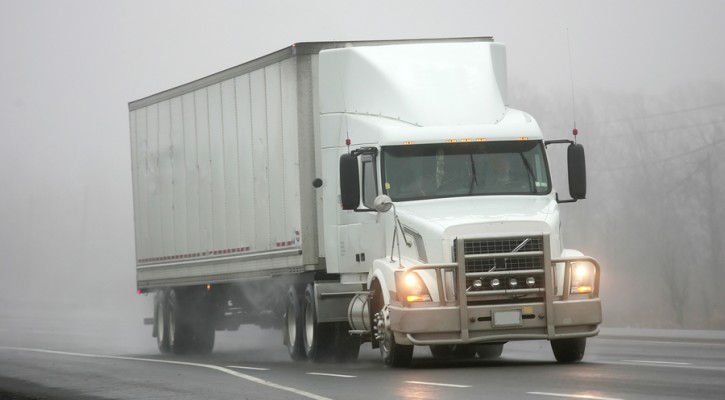
In Search of a Good Mechanic
April 21, 2015
In a perfect world, all drivers would know a thing or two about engine maintenance and repairs. Along with our high school math, science and English classes, students would learn the basics of car mechanics, and be able to perform the vital tasks of vehicle maintenance before they ever stepped foot in the DMV.
However, most people know very little about what’s going on under the hood. Additionally, the basics of auto maintenance are getting far more complicated as our engines get more efficient, compact and technologically advanced. That’s why it’s so important for drivers to do the research and legwork it takes to find a good mechanic.
Where do we start?
1. Ask Around
Talk to your friends, your family, your neighbors and everyone in between.
2. Peruse the Reviews
Peruse the reviews on Yelp, Google, Angie’s List and other websites. You can find some really great, honest advice here. However, it’s best to take any online advice with a grain of salt. Many trashy, unwarranted comments make their way onto the internet. At the same time, many fake reviews are written to improve a business’s online reputation. Most of the time, the intentions are easy to spot and the truly good advice shines through.
3. Check with the Local Car Club
There are many car clubs devoted to specific makes and models. Look up the local car club listings for your car’s make, model and year number. The fine folks in these passionate car owner clubs will usually steer you in the right direction.
4. Take a Sneak Peak
Visit your local mechanics for a sneak peak into their garage. If you see clean, classic cars with rebuilt engines, you’ve probably stumbled into a passionate, dedicated mechanic. If you see a mess of rusty clunkers and disorganized chaos in a poorly lit garage, you might be dealing with poor management and unhappy workers.
5. Meet the Mechanics
Talk to the people working on your car. You’re paying good money to be able to drive. You’ve invested in a vehicle, insurance, registration and more. You will be paying for maintenance and repairs. You will want someone you can trust, as well as someone who knows how to work on your specific car. Many old timers don’t know much about newer engines and all their electronic quirks, while many younger mechanics lack the experience it takes to keep up an old, classic Chrysler.
Finding a good mechanic is like embarking on a quest for the Holy Grail. It may seem like an impossible feat, but if Monty Python could do it then so can you.

Battling Lonely Trucker Blues
April 21, 2015
The life of an over-the-road trucker is an exciting one. There’s travel and adventure, picturesque views, unique characters and plenty of memorable experiences. However, at one time or another, every long-haul driver will experience loneliness. Loneliness doesn’t have to drag you down, though. Try these brain hacks for battling the lonely trucker blues.
Live in the Moment
Loneliness is triggered by thoughts about the past. Rather than dwelling on thoughts about folks back home, or good times of the past, think about what is happening right in front of your eyes (especially if you’re driving!). Concentrate on the feeling of a rumbling engine, the smell of the mountain air or the sounds of a vibrant city. Do something fun, productive, relaxing – anything. Work or play, action of any kind, will help snap your mind out of a lonely loop and keep you moving forward.
Boycott Facebook
Facebook, Instagram and other nostalgia-inducing social media can really trigger lonely feelings. All the old photos, status updates and special moments being shared can really make you miss being with the people you love. That’s why it’s best to avoid these social media indulgences until you return home.
Talk to Everyone
While much of the trucker’s life is spent alone in the cab, there are also plenty of opportunities to talk to new and interesting people. Strike up conversations in line at the coffee shop, at the breakfast counter at Denny’s or while pumping gas at the truck stop. Wave to people on the road, tip your hat to fellow truckers and smile at everyone you walk past. Even the smallest interactions can make the heart warm up a little bit.
Keep in Touch
This may sound like a contradiction to the social media ban, but it’s vitally important to keep in touch with the people that you care about. However, keeping in touch doesn’t mean silently scrolling through Facebook pages. Keeping in touch involves real conversations, whether they happen on the phone or online. Make an effort to call or chat nightly, weekly, or monthly with friends and family. Make a phone call once in a while, or set up nightly skype sessions. Either way, you’ll feel much better after having a real interaction.
Besides battling the lonely trucker blues, keeping in touch will also improve home life when you return. By talking and communicating regularly, you will be on the same page as friends and family. This will make the transition from over-the-road life to home life much smoother. For instance, without any prior discussions your family may be planning a trip to the beach when you return home from a long haul. However, the reality may be that you will feel too exhausted to want to drive anywhere. Without talking about it, that point will never get across.
Count Your Blessings
Rather than focusing on what you miss, learn to focus the mind on the things you enjoy about life at the moment. Are you fond of the feeling you get when you’re on the road. Do you enjoy the freedom? Do you relish the idea of waking up in the desert and ending your day in the mountains? How about that upcoming paycheck? Be sure to take stock of everything you have to be grateful for.
You’re a Lonely Trucker. Own it.
Finally, remember that you are not alone in your loneliness. This feeling plagues the minds of men and women everywhere, and there’s no reason to be embarrassed. So own it. People understand the feeling of loneliness and are often empathetic. That’s why some of the best conversations you will ever have are with fellow truckers and other long-distance drivers. So enjoy the company when you can, and use and share these brain hacks to help battle loneliness on the road.

How to Fail Your CDL Road Test
March 23, 2015
Passing a CDL Road Test is serious business. It’s taken a lot of hard work to get to this point, and now your life, your career and everything will depend on a passing grade from the CDL Examiner. Are you ready?
Before you get behind the wheel of that 18-wheeler, take a lesson from the unwritten book, How to Fail Your CDL Road Test:
Automatic Fail #1: Hitting a curb
Many drivers are surprised to find out that they have failed the test just because they barley rubbed their wheel against a curb. What may seem like the smallest of mistakes, the “curb check”, is actually a potentially deadly one. The danger to pedestrians makes this unsuspecting mishap #1 on the list of automatic fails.
Automatic Fail #2: Taking your hands off the wheel
When driving a truck, your hands should only leave the steering wheel for essential functions, such as shifting gears. It may seem obvious, however, many people make this mistake unconsciously. They itch their nose, they loose a point. They readjust their glasses, they lose a point. They fix their hair or mess with their phone, and they are automatically failed.
Automatic Fail #3: Forgetting your turn signal
The trucking industry is no place for the absent-minded. If you want to drive for a living, then you will need to use every safety feature at your disposal, and that includes turn signals. Using turn signals can prevent accidents, as well as improve traffic flow.
Automatic Fail #4: Rolling backwards
It’s important to master the art of taking off from a stop, especially on hills and in heavy traffic. If you roll backwards when taking off from a stop during the exam, you are guaranteed to receive a failing grade.
Automatic Fail #5: Losing your cool
The stakes are high. The time, the money, and the effort have been invested. The examiner looks tough, and the pressure is on. That’s the way they like it. CDL examiners want to see if all this pressure will make you lose your cool. Driving thousands of pounds through dangerous traffic and road conditions every single day is no job for the faint-of-heart. They need to know that you are mentally prepared to perform well under pressure.
Failure is a necessary evil. Without it, we would never learn anything. So fail early, fail fast, and fail often. Get in plenty of practice, work out all the kinks. Build your muscle memory, and of course your mental memory. Then, when test day comes, you won’t fail. You will succeed!

Parking For Truckers, Safety For All
February 28, 2015
Since the Tracy Morgan trucker crash in 2014, Americans have been especially concerned about safety standards in the trucking industry. However, many people fail to consider the safety of the drivers themselves, who deal with daily difficulties finding safe, legal parking when sleep is desperately needed.
One of the most practical ways to support well-rested, safe truck drivers is to allow them to get off the road when they are tired. Safe parking for truckers means safer roads for all.
An old discussion on Allen Smith’s Truth About Trucking online radio show comes to mind. On the show, Smith was joined by family members of truck drivers who lost their lives because they were forced to park in dangerous places. Veteran trucker David Clark, who has engaged with the driver community on the issue of parking safety and availability, also joined the conversation.
Knowing where, when and how to park is part of the trucker’s life. Having conversations such as this is one way to make that life little bit easier, or at least help keep it from getting harder.
To hear the full story on modern parking issues in the trucking industry, as well as some of the real life consequences that come with a scarcity of safe parking for truckers, see the full story below:

Petro Truck Stop Doc
February 24, 2015
The truck stop doctor is a new breed of medical provider. Some truck stop docs are generally good folks, some are terrible, and some are even worse. However, every once in a while we come across a wonderful story such as this one.
The Washington Post recently published this article featuring a small farm town doctor and a popular truck stop in Virginia. Not only was this doctor and all-around great guy, but he was also named “Country Doctor of the Year”. Now that he has expanded his practice to include evenings at the TA Petro, this truck stop may be winning some awards of its own.
The fact that drivers can stop here for an oil change, a workout, a shopping spree, a good meal and even some hunting gear is already a good reason for high marks, but now they can also get a checkup from an exceptional doctor. Dr. Marsh is a decorated U.S. Special Forces medic trusted by local farmers and nomadic truckers alike. That is a rare find in the medical industry, much less the trucking medical industry.
Remember, truck drivers have required checkups. This is important for their health, their safety, and the safety of the public at large. That’s why it’s so great to hear stories such as this, which show that convenient, affordable, quality healthcare is available for those on the road.
See the full story here:
Virginia Doctor Tries Truck Stop Medicine

True Trucker Stories
February 12, 2015
Wondering how to deal with bad dispatchers and careless management? Wondering how you can be a true trucker, keep your job, and still drive safely when everyone is pressuring you to drive beyond your limits?
This week’s true trucker story comes from the RunHard GetPaid channel over at YouTube. It is a perfect example of how to deal with a difficult situation the right way. In fact, we would put this video in a textbook if we could. See the full story here:
Remember, you are ultimately responsible for the truck you drive. That’s why it’s so important to pull over and sleep when you have to, no matter what anyone says.

Real Life Questions and Answers: Car Trouble
January 9, 2015
If my vehicle breaks down, how long can I leave it on the side of the road?
This is an excellent question. The short answer is: it depends.
The length of time you can leave a vehicle on the side of the road varies greatly from state to state and city to city. Depending on your location, you may have as little as a few hours or as much as a few days to move the vehicle.
It’s important that you make every effort to park the vehicle where it does not impede traffic. If that is not possible, then it will be towed immediately, often for a hefty fee.
If the vehicle is parked safely on the shoulder or side of the road, then you have considerably more time. Most police officers try to remove a vehicle parked on the side of a busy interstate within 4 to 6 hours. If it’s parked on the side of a regular road, then they will tag it and tow it within 24 to 72 hours.
The best way to answer this question in your local state is to go to the official state website and search for “abandoned vehicle”. For example, a search for “abandoned vehicle” on Texas.gov gives us this:
“Sec. 683.002. ABANDONED MOTOR VEHICLE. (a) For the purposes of this chapter, a motor vehicle is abandoned if the motor vehicle:
(1) is inoperable, is more than five years old, and has been left unattended on public property for more than 48 hours;
(2) has remained illegally on public property for more than 48 hours;
(3) has remained on private property without the consent of the owner or person in charge of the property for more than 48 hours;
(4) has been left unattended on the right-of-way of a designated county, state, or federal highway for more than 48 hours;
(5) has been left unattended for more than 24 hours on the right-of-way of a turnpike project constructed and maintained by the Texas Turnpike Authority division of the Texas Department of Transportation or a controlled access highway; “
While a search for “abandoned vehicle” on the Tennessee website (tn.gov) gives us this:
“If you encounter an emergency that requires you to abandon your vehicle on the side of the road, try your best to leave the vehicle in a location that does not impede traffic. Again, turning your wheels to the right is a good idea.”
“Tennessee law states you have 48 hours to remove a vehicle before it is towed. Abandoned vehicles may be legally removed from the roadway if left for more than 48 hours. However, if a vehicle is left in a place that interferes or impedes traffic, that vehicle can be towed immediately. If towed by THP, the vehicle will be taken to a local towing lot. You can contact the THP District Headquarters in the area where you left your car to find out where the vehicle was towed.”
It’s always best to fix or tow your vehicle as soon as possible to avoid tickets, towing fees, and impound lot fees, as well as prevent damage from criminal activity.
If you have a question you would like answered on our Real Life Questions and Answers series, then feel free to post your inquiries on our Facebook page.

A Worthy New Year’s Resolution: Put the Phone Down
December 30, 2014
The best New Year’s Resolution we’ve heard this year comes from a teen driver in Texas: A resolution to put the phone down and be more present.
People get tunnel vision when it comes their phones. Rather than enjoying a concert, a party, or time with friends and family, their concentration is directed towards the glowing screens of their cell phones. They miss important conversations, epic performances, and experiences they will never be able to get back. That’s why this New Year’s Resolution is so beautiful. Without a constant connection to the phone, this college freshman will be able to truly enjoy every minute of 2015.
Another reason we love this New Year’s Resolution: there will be at least one safe driver on the road this year. There will be at least one person driving that isn’t checking their cell phone for missed calls, text messages, facebook updates or Snapchat posts. Rather than looking down at her phone, this driver will have her eyes on the road. If only the rest of the drivers out there were so enlightened.
It is true that some phone calls and text messages are important – life changing, even. However, there’s no reason why these conversations can’t wait, especially if you are driving a vehicle. So let’s all take a lesson from this savvy Texas girl and put the phone down… if only in the car.

Winter Safety Tip #3: Don’t Follow the Pack
December 17, 2014
Winter driving conditions create the perfect environment for a highway pile-up. That’s why it’s important for truckers to be smarter than the average driver and avoid travelling in packs.
Instead, keep your distance from other vehicles, maximizing the space between your big rig and all the other folks on the road. That way you will have plenty of time to stop no matter how icy, snowy or wet the roads may be.
While maneuvering your ride into the best position in traffic, keep in mind that following distance isn’t the only thing that matters. Vehicles beside and behind your trailer are just as susceptible to stupidity as those in front of you, so find that sweet spot that puts the greatest distance between you and everyone else on ALL FOUR SIDES!
Of course, the best way to avoid following the pack is to plan your trip around peak traffic hours when passing through major cities. Avoid the morning rush and the after-work traffic jam. Getting in and out of the city before 4PM will ensure smooth, time-efficient travels.
Besides the bonus of added safety, driving a greater distance from other vehicles also helps save gas. That means less time out in the cold fueling up, and more time making money behind the wheel.

Winter Safety Tip #2: Don’t Be an Over-Achiever
December 10, 2014
Winter is a dangerous time to be on the road. There is snow, rain, ice and sleet in the forecast for most of the country, creating perilous road conditions. This is no time to be an “over-achiever” and push the HOS (Hours of Services) limits.
From northern blizzards to southern floods and thunderstorms, every highway in the U.S. is experiencing harsh weather this holiday season. Getting from Point A to Point B is going to take some excellent winter driving skills, as well as savvy planning skills. Making safe decisions about your route, your driving time, and your ability to navigate through changing weather fronts is especially important.
If weather stations are predicting snow or ice, then try to schedule your hours during the day. Research potential truck stops, restaurants and motels to ride out the storm, and don’t feel pressured to drive in dangerous conditions.
Dealing with dispatchers can be another tricky matter. Make sure that you communicate often and understand each other when it comes to discussing drive time, traffic and weather conditions. Remember that you are the one that will be held accountable if your truck gets into an accident, not them. So don’t feel like you are letting anyone down by playing it safe and rescheduling an appointment.
While on the road, drive at a speed that feels comfortable and controllable. Take it easy, keep a safe distance, and don’t push yourself beyond your capabilities.
Save your over-achiever gumption for warmer weather and better driving conditions. In the meantime, drive easy through the winter season and enjoy the holidays!
